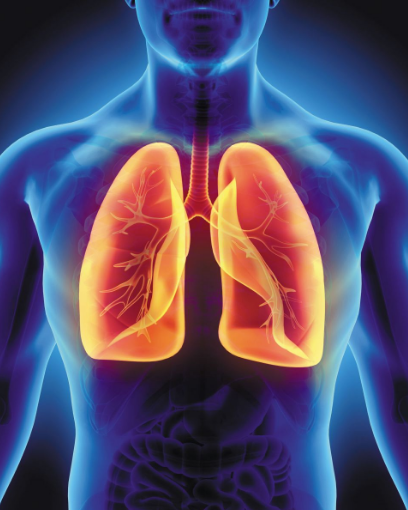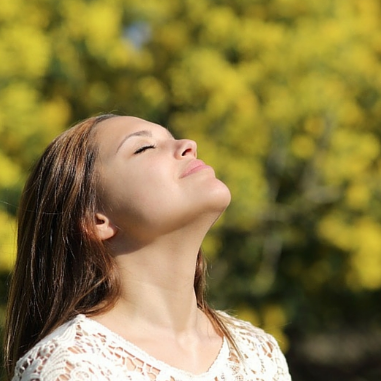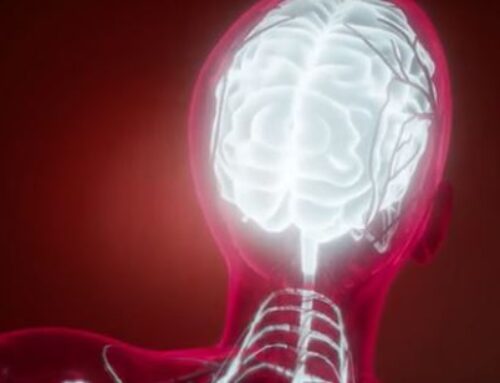The functions of the Lungs make them Yin organs because they connect the body to the exterior through skin and air; consequently, they are most vulnerable to pathogenic and climatic factors.
The Lungs Dominate Qi and Respiration
1. The Lungs dominate respiration : they inhale clean air and exhale the dirty air. This cycle of the ‘Heavenly Qi’, or air, secures the regular function of the processes within the body.
2. Qi is dominated through the functions of the Lungs because they create a a mix of clean air Qi and food Qi provided by the Spleen called the Gathering Qi, or the Zong Qi. The chest is called the ‘Sea of Qi’, and the Gathering Qi is called ‘Big Qi of the chest’. The Big Qi provides good circulation for the functions of the Heart and the Lungs, and nourishes tissues. Weak Lung Qi may cause fatigue and some shortness of breath.
Channels and blood vessels

The Heart is the Emperor that governs the blood and the Lungs in turn are the Prime Minister that governs Qi; they depend on each other in the same upper region of the body. The Gathering Qi, pushes the blood and nourishes the acupuncture channels and blood vessels. Similarly to the Prime Minister regulating laws, the Lungs regulates the Qi for regular physiological activities within each organ.
Strong Lung-Qi maintains healthy blood and warm limbs. Otherwise, blood will not be pushed properly and limbs would be cold, mainly visibly in the hands. The pulse felt along the artery is due to the Qi pulsing the blood since the breathing regulates the blood.
The Diffusing and Descending of Qi
The Lungs spread Defensive Qi and Body Fluids between the skin and muscles that warms them throughout the organism. The Lungs ensure there is an even distribution of Defensive Qi under the skin which shelters the body from external pathogenic factors. Lung Qi isn’t diffused properly when the Lung is weak.
If Qi becomes weak, the open pores are prone to attacks from pathogenic factors and Qi will be lost with the sweat. However, if the space between the pores are too tight, there will be poor circulation and will stunt the diffusing function.
The Diffusing and Descending of Body Fluids
The Lungs diffuse Body Fluids as mist through the skin and muscles and manages moisture through pores and sweat. If the function is regulated, the skin will have an apparent luster, and sweat is normal. In excess, there is a lack of sweat and the skin becomes too tight causing dryness in the skin and a poor reaction to pathogenic factors. In deficiency, there is a lot of sweat and the muscles are too loose. If the lungs do not function properly, it could cause Oedema where fluid accumulates under the skin with weak immunity to pathogenic factors.
The Lungs are considered the ‘Lid’ because they are the uppermost organ in the body, so they must descend to communicate with the Kidneys. When the Lung Qi does not go down, it is retained in the chest and will impair breathing. The Lungs need to descend fluids to the Kidneys for evaporation, which are restored back to the Lungs for moisture. The fluids sent to the Bladder are excreted as urine. The Large Intestine could lose power for defecation or induce retention of urine, mainly in the elderly.
Triple Burner System
The Triple Burner System contains the chest cavity/upper burner, the abdominal cavity/ the Middle Burner and the pelvic cavity/Lower Burner. This system allows the transformation and excretion of fluids through each cavity. The Upper Burner physiology of fluid metabolism is practiced in the diffusion and descending of substances from the Lungs, regulating Water Passages.
Body hair
The state of hair identifies the state of Lungs due to the fact that the Defensive Qi flows through the skin and the hair. As a result, if body hair does not maintain health and appears brittle and dry, Qi is not diffused properly throughout the body.
Respiration starts through the nose
Pathogenic factors attacking the Defensive-Qi causes runny noses and sneezes, blocked nose due to dampness, Lung-heat causes nose bleeds and loss of smell with possible symptoms of pneumonia. If the mucus turns yellow, the heat is affecting the Lungs. The Lungs control the nasal mucus as a defense against pathogenic factors. If the diffusion and descending of the Lung-Qi is irregular, the mucus could accumulate and cause runny nose or stuffy nose.
The Lungs house the Corporeal Soul
The Lungs are a physical manifestation of the soul and given the name Corporeal Soul(Po) Yin, the counterpart of the Ethereal Soul(Hun). The Corporeal Soul transports Essence and helps the physiological processes to defend against exterior pathogenic factors. The Essence travels between the skin and muscles where it plays a role in protection against external pathogenic factors.
The Senses of the Lungs
The treatment of the Lungs connects to emotional problems such as worry, grief and sadness, reducing Qi; it increases the tension in the shoulder and chest, especially in chronic worry. Qi stagnation because of stress is the major root of the formation of breast lumps in women. Effects become visible through weakness, loss of weight and pale features and shortness of breath. The color white, or the color with the liver, shows deficiency of the Lung-Qi. Usually dreams connect to that of worries and stresses. For instance, some may dream of battles and fears
The rotten smell is the smell of the purulent sputum in an infection of the Lungs or in Lung-Heat or Phlegm-Heat.
Pungent tastes in food and herbs associates with the Lungs, so pungent tastes could tonify Lungs. Excessive consumption of this taste could, however, weaken Lung-Yin or lead to Lung-Heat and damage the Liver(Metal overacts on Wood).
An excessively dry climate affects the Lung- Yin since the moisture is necessary for the system to function properly. The functions of the Lungs control the skin, the defensive Qi and the voice and are more vulnerable to the cold. The strength of the voice determines the Health of the Lungs.
In conclusion, the Lungs are a delicate organ that are affected externally and internally; Therefore, Children are more prone to respiratory infections.







Leave A Comment